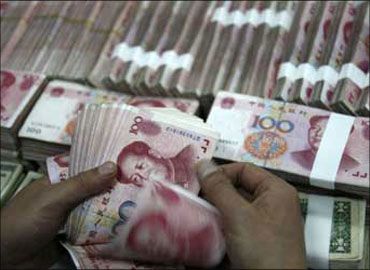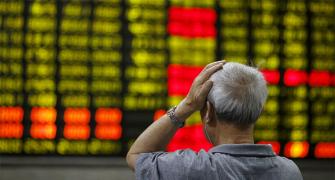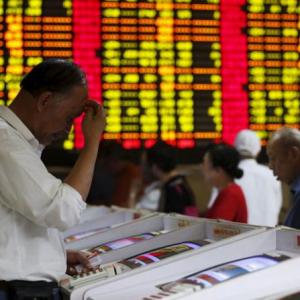 China's central bank on Tuesday devalued its tightly controlled currency by two per cent to improve central parity system, amid slowing down of the world's second-largest economy and recent stock market crash.
China's central bank on Tuesday devalued its tightly controlled currency by two per cent to improve central parity system, amid slowing down of the world's second-largest economy and recent stock market crash.
Effective Tuesday, daily central parity quotes reported to the China Foreign Exchange Trade System before the market opens should be based on the closing rate of the inter-bank foreign exchange rate market on the previous day, supply and demand in the market, and price movement of major currencies, the People's Bank of China said.
Following the change, the central parity rate of the RMB, or the yuan, weakened sharply by 1,136 basis points, or nearly 2 per cent, to 6.2298 against the US dollar today, state-run Xinhua news agency reported.
The PBOC said the RMB's central parity has deviated from its actual market rate by ‘a large extent and for a long duration,’ which has ‘undermined the authority and the benchmark status’ of the central parity system.
As the economy of the US improves, with interest rate hikes highly expected within this year, currencies of emerging economies have generally depreciated against their currency and a strong RMB has created pressure on China's exports, the PBOC said in a separate statement defending the new policy.
The new measures announced by PBOC is the clearest sign yet the government may let the currency soften after worsening economic data and a stuttering stock market, Hong Kong-based South China Morning Post reported.
"The international economic and financial conditions are very complex.
“The US dollar is strengthening, while the Euro and Japanese Yen are weakening. Emerging market and commodities currencies are facing downward pressure and we are seeing increasing volatilities in international capital flow," The Post quoted a spokesman of the PBOC as saying on Tuesday.
The onshore yuan trading band is tightly controlled.
The People's Bank of China set a daily mid point around which the currency can trade up or down 2 per cent each day.
This latest development follows an announcement two weeks ago that the PBOC would widen the yuan daily trading band.
So far the Chinese government had resisted calls from economists to let the currency devalued to boost the economy, which hovered around seven per cent with forecast that it would go down to 6.8 per cent.
Coupled with that the recent stock market crash which wiped out about $3.2 trillion of capital, export declined by 8.3 per cent year on year in July.
"I am not surprised at all. The Chinese government will let the renminbi weaken gradually. It will keep doing this policy easing, including cutting interest rates" to help the economy, William Mo, Tung Shing Securities vice president, told the Post.
With the US Federal Reserve poised to hike interest rates possibly as soon as next month, the US dollar will only get stronger increasing the pressure on China to give the yuan more freedom to trade lower, he said.
The PBOC spokesman also said there would be further ‘market-orientation’ and that the central bank was now soliciting quotations from market makers before setting the mid price -- a first for the PBOC, the Post added.








